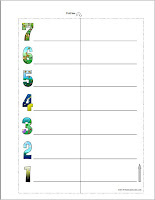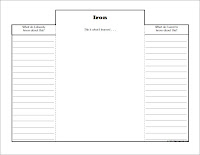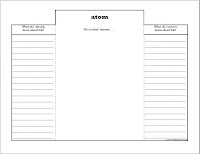Many years ago I bought a book at our parish mission from Tan Books. It was tiny, cheap, and short so I figured I could finish reading it rather easily, so I bought it. I was drawn to it by its title, "Read Me or Rue It" by Fr. Paul O'Sullivan. How could I pass that by without wanting to know what was so important that one would give a book a title as strong as that? It literally changed my life. I began praying for the Holy Souls daily, learned about St. Gertrude and memorized the prayer our Lord shared with her. The Holy Souls or Church Suffering have a very special place in my heart and our family prayer life.
Today I share one of my favourite prayer projects of the year. It is called the Holy Souls Prayer Project. This family project is designed to help children learn about love through praying for others especially those who can't help themselves. One of the seven Spiritual Works of Mercy is to pray for the living and the dead. November is deemed the month dedicated to the Holy Souls. The poor souls in Purgatory need our help and you can be sure that they will remember us and pray for us in return as well. :)
This project is very simple.
 |
| Prayer Chart |
Step 1: Print out the Prayer Chart to keep track of your family's prayers and the Holy Souls released through steadfast prayer throughout the month. This chart allows children to practice math skills as they see the great impact that their prayers have. You may decided to use one chart per child or even one per family if that is easier.
Click Here to download the Prayer Chart.
 |
| Prayer Sheets |
Step 2: Pray the prayer dictated to St. Gertrude by our Lord Jesus Christ as often as possible throughout the month. St. Gertrude was told that each time this prayer is devoutly said, 1,000 souls are released from purgatory. If not already committed to memory, you can print out the prayer to release the Holy Souls. You can print it out in a plain .PDF (2 per sheet) like at right or use Our Learning Card for the this prayer.
Click Here to download the prayer sheet pictured at right.
Click Here to download the Our Learning Card style prayer card.
 |
| Gift of Prayer Counters |
Step 3: Pray daily and keep track of your prayers and souls for the entire month of November using the Holy Souls Prayer Chart for older learners and the Gift of Prayer Counters for younger learners. can cut out and affix the Gift of Prayer Counters to a door, wall, bulletin board or window frame to keep track of how many souls they have helped to Heaven. It's that simple.
Click Here to download the Gift of Prayer Counters.
We have a few other resources that can help you in this project including prayer copywork and a saint mini-book to help learn about St. Gertrude. Click the links to see those resources now.
Don't forget you can pray for the Holy Souls on any day, in any month as well so you can repeat this project as often as desired.
If you enjoyed this family project and would like to perhaps explore other family projects that we have click Here.
May God bless you and those you pray for.
Blessings,
Kalei - That Resource Team

















































